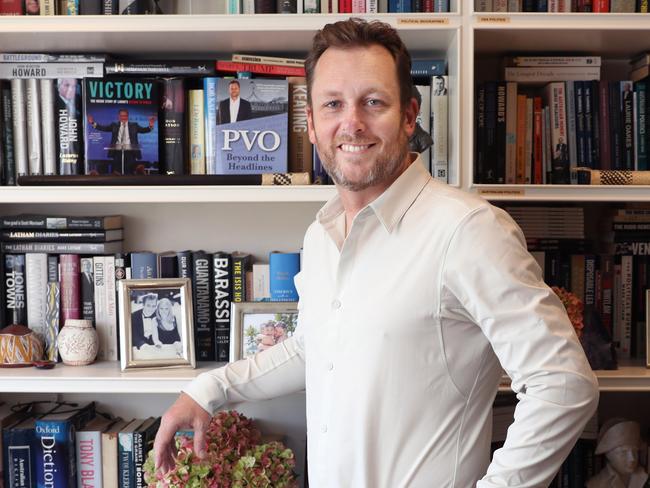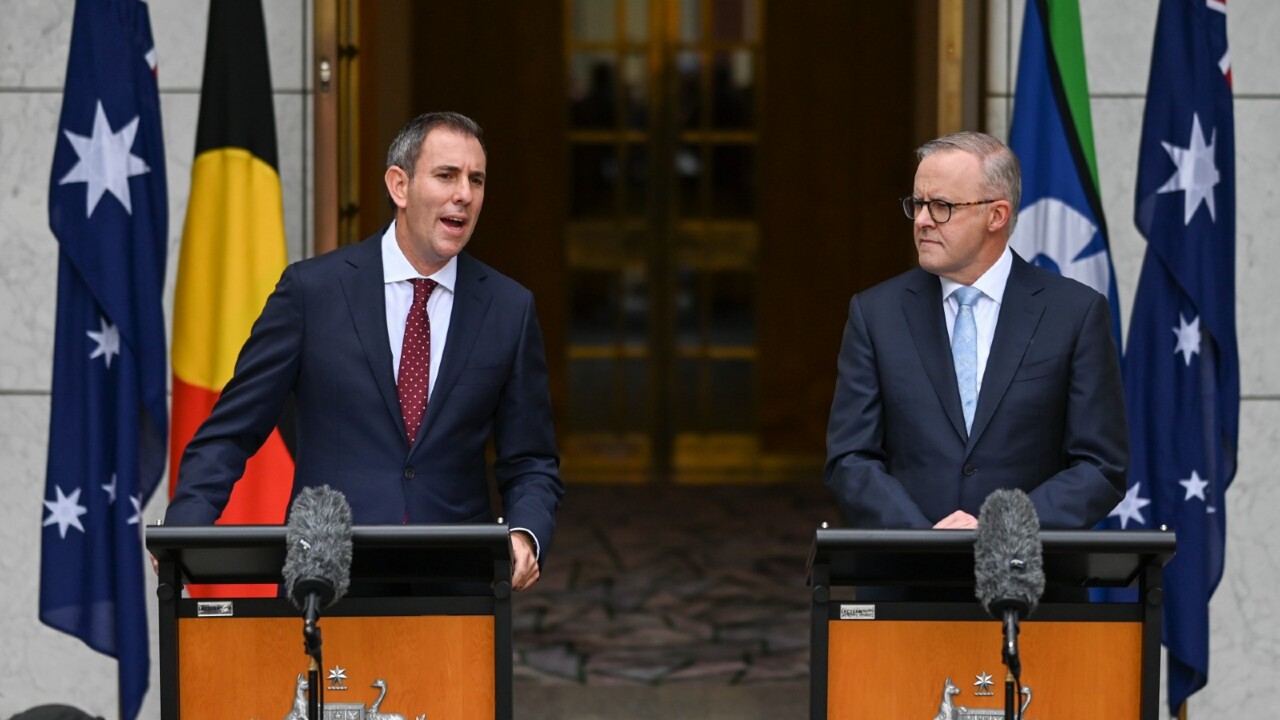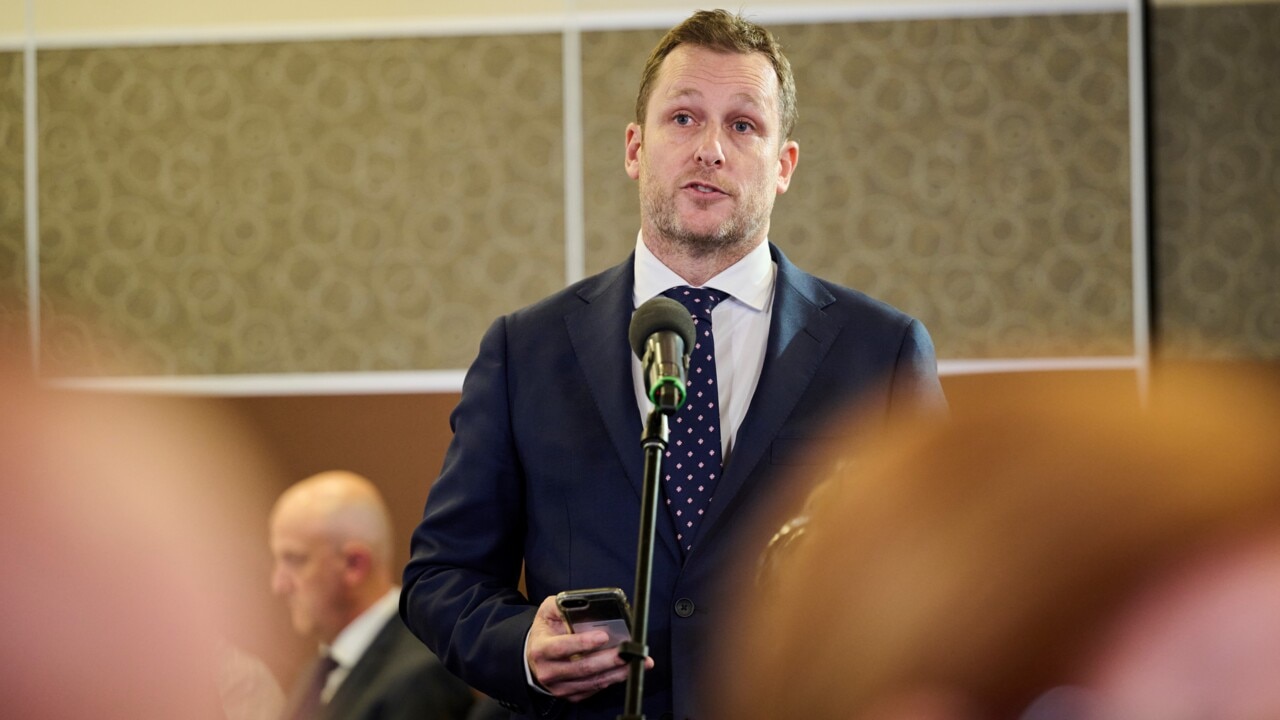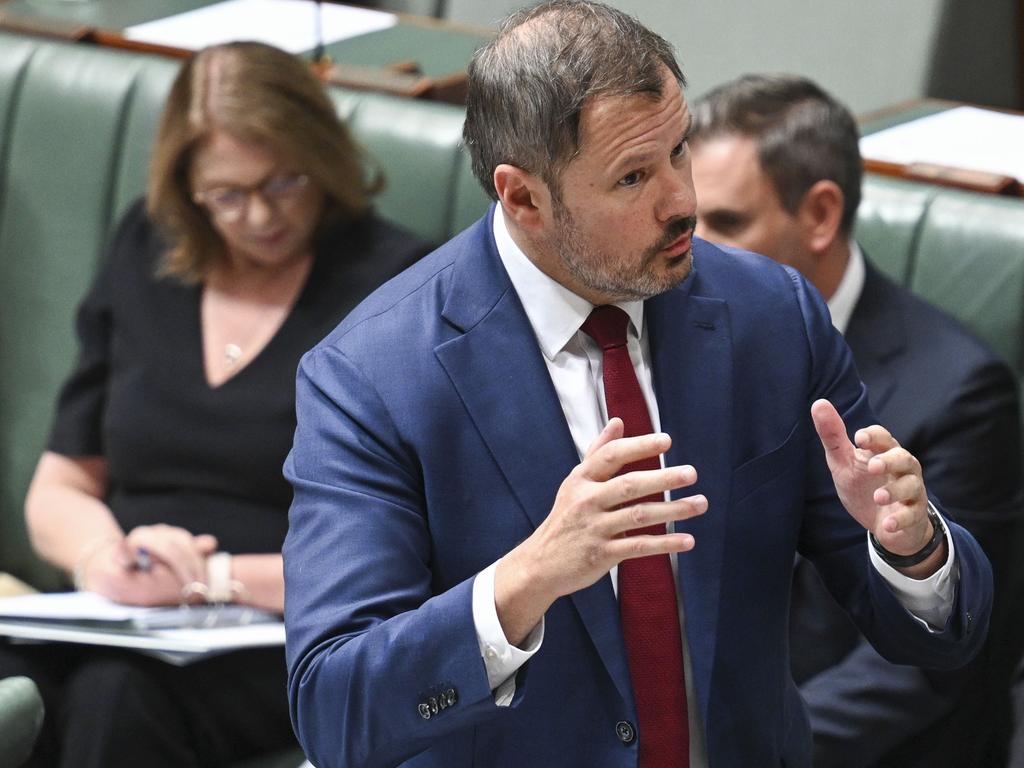
Times certainly change, the future isn’t set in stone.
Chris Mitchell, the editor-in-chief at the time, offered me a job as the paper’s contributing editor, and this weekly column was the centrepiece. He changed my life.
I never imagined I’d be privileged enough to write a regular column in the national broadsheet for 15 years. I don’t want to age Paul Kelly and Dennis Shanahan (apologies, gentlemen), but I had grown up reading their writing, sparking my interest in the study of politics. To this day Kelly’s The End of Certainty remains the greatest book on Australian politics ever written. Anyone who hasn’t read it should. It gets only better with age. The chance to join them at the paper as a regular columnist was one of those opportunities you don’t say no to.


I left academia in Western Australia, albeit temporarily, and our family moved to Sydney so I could pursue what was an unexpected opportunity: political journalism. It wasn’t something on my radar when I became a tenured academic, considering that my first and last serious job.
My wife, Ainslie, was beyond generous, putting herself second so I could drag us all across the country. Given that she was the primary breadwinner – not unusual in our family, by the way – the act was even more selfless.
I quickly discovered how different politics was from the inside. All of a sudden politicians were texting morning, noon and night. No middle man, or rarely so. It was a surprise. I did not realise the club that politics could be was quite so insular. Resisting its power to change you has been one of the hardest things to overcome.
Once I started, inevitably the criticisms followed: how can you work for the Murdoch press? You’re now part of the problem. Spare me. I’ve always shaken my head at the conspiracy theorists who wax lyrical about “the evil empire” wherein the Murdochs look over their journalists’ shoulders, telling them what to write, what to think and how to function as human beings.

The more nuanced conspiracy theorists assume they do that only to their top editors, who then do it to their writers so the Murdochs don’t have to. I can speak only for myself, but in 15 years I have never been told what to write. I have never had a column rejected. In fact, early on I would walk out of editorial conference knowing what the paper’s editorial would be on, and if I disagreed with it I would write my column offering a contrary position. No one ever took me to task for that either.
Being a contrarian has long been my mantra. Of course editors direct their journalists when it comes to news stories. That’s their job. The Australian is not a bottom-up organisation. That’s called good journalism. This newspaper backs its journalists more than any other media organisation I’ve worked at, which gives you the confidence to be yourself. I’ll never forget opposition leader Malcolm Turnbull thundering, shortly after I arrived, that I should be sacked. He wasn’t Robinson Crusoe! As an opinion writer I’ve never been told what my opinion should be and I lasted 15 years at this paper, loving every minute of it.
In the decade and a half since I began writing this column there have been many changes in Australian politics. Perhaps the biggest has been the ideological adjustment on both sides of the major-party divide. Liberals have lost their connection to small and large businesses, losing purpose as a consequence. Labor has become more anti-business, straying from the important shift that took place during the Bob Hawke and Paul Keating years.

I blame John Howard’s introduction of Work Choices legislation. Done with ideological intentions in mind, he underestimated the selfish willingness of some employers to take advantage of their employees, using the legislative freedoms Howard enacted to do so. Labor saw the laws as a political opportunity, developing one of the best – and most misleading – scare campaigns in modern political history to disembowel the government. It was a precursor of what was to come in Australian politics, stifling ideas thereafter.
It was the aftermath of this campaign that changed the nation. Both parties learnt the power of persuasion, albeit misleading, to win votes. Labor lost its Hawke-era willingness to back entrepreneurship and the Liberals decided that doing so wasn’t a political price worth paying.
Nearly two decades on, we are seeing the consequences of this shift. Attacks on business work politically. Populism does win elections. This approach is bleeding into other debates, on climate change for example. Yet Australia remains a lesser evil compared with what’s happening elsewhere in this respect. We have compulsory voting to thank for that.
Nonetheless, the shift has reduced the capacity of politics to make a difference for good. And at the same time the calibre of who goes into politics has been lowered. The profession, for that is what it has become, is dominated by functionaries and careerists who care little for ideas that matter but that may toss them out of parliament.
Winning elections is what political professionals want more than anything else. The agenda they take to elections matters little, other than to the extent it gets them re-elected. The media and voters are as liable for this downward trajectory as the politicians. Simpletons on the left blame the Murdochs, of course. The right blames a woke agenda. The truth is much more complicated and has nothing to do with either of these easy-to-clutch-at excuses.

Life is getting more complicated and people are switching off from politics. The media concentrates too much on itself. Political insiders are more focused on the horse race than the policy debates that matter. As the quality of our MPs has diminished, so has the quality of public debate. I blame the impact of social media far more than any bias within the media, even the decline of the once-high standards at the ABC.
Putting such negativity to one side, with this my final column I want to thank everyone I have worked with at The Australian through the years. I reserve my biggest thanks for the sub-editors who have saved me from myself too many times to remember. My bosses across the years have been good bosses, precisely because I have never felt like I had one.
I’m leaving the paper on my own terms, albeit with sadness, but with nothing but grateful thanks for the chance to write this column every week for so long. There are employers I’ve been glad to get away from during the course of my career, but The Australian isn’t one of them. It’s just time for a change. Thank you to anyone who has bothered to read my musings through the years, whether that has been with enjoyment or in unadulterated frustration. I’ll miss the feedback, remembering that feedback of any sort is always a gift.
Peter van Onselen is Winthrop professor of politics and public policy at the University of Western Australia.






I started writing this column back in 2009. Kevin Rudd was more popular than Bob Hawke and the assumption was that he’d be at least a three-term prime minister.